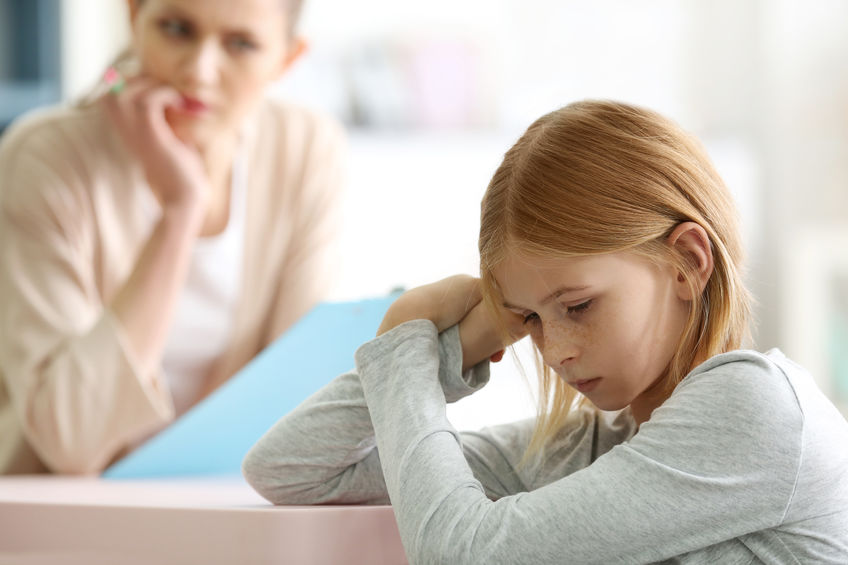Talking to Kids about Mental Health
According to the Anna Freud National Centre for Children and Adolescents, it can feel difficult to start a conversation with children and adolescents about mental health. This may be because you don’t feel equipped with the information you think you may need or lack confidence about how you even open up the conversation.
Daniela Payne stated in her article at Today’s Parent that it can be difficult to find the words to talk to your kids about depression, anxiety, and mental illness. Talking to kids about mental illness is hard—so hard that many of us put it off indefinitely, not wanting to expose them to things like depression or overwhelming anxiety when they are so young and innocent. But rather than keeping kids in the dark, it is essential to learn how to talk about mental health with them to help them feel comfortable talking about their own worries and end the stigma before it begins.
“We know it is very important to talk openly and honestly to children about mental health,” says Jill Dennison, a mental health promotion and resilience facilitator at the Canadian Mental Health Association, based in Hamilton, Ontario. She explains that kids should understand that mental health means having a balance in life, and this balance looks different for everyone. Learning about mental health at a young age can help them find their own equilibrium and recognize things in their lives that throw them out of balance. Dennison emphasizes the need to start with conversations about mental health, not a mental illness. “Mental health affects us all, no matter our age. If we have a brain, we have mental health and that is often how we discuss it with children.” Here are some expert tips to help you get the conversation going.
Bringing it up
If you are feeling a little unsure about how to bring up the topic with your kids, try to find a conversation starter from everyday life. A movie that features a character with mental health challenges or a celebrity who has had a positive experience could make for good entry points. Kids hear all sorts of stereotypes in the schoolyard, so if you overhear your child or their friends using a derogatory term like “crazy,” use that moment as a way to start the conversation. Dennison also suggests using something your child is interested in, like art that depicts emotions, as a jumping-off point. If your kid has witnessed an incident with a family member who has a mental health condition, this can be used as an opportunity to delve deeper into the issue. Start by asking her/him how she/he feels, and let the conversation grow organically from there.
Finding the words about Mental Health
Use age-appropriate language when discussing any topic with your child, advises Jean-Paul Boudreau, professor of psychology and director of the Children, Health, Infancy, Learning, Development (CHILD) lab at Ryerson University in Toronto. He suggests trying to find a frame of reference they can relate to. “They may know someone who is sick or feeling very sad. Weave the narrative of mental illness into something they know or have witnessed,” he says.
Dennison explains that kids need to be reminded that there is no such thing as a stupid question. It is important to listen to them without judgement, and to refrain from telling them how to feel. “Allow them the opportunity to express what they are feeling,” she adds.
Both Boudreau and Dennison suggest finding ways to explain to your child that an illness in the brain is no different from one in the body, like cancer. By making this comparison, children may be able to better understand how a family member is experiencing a particular illness and how he/she can be treated to get better.
Tailoring to their age
There is no age too young to start the conversation, but, of course, how you talk to your 13-year-old will be different than how you talk to your toddler. “Don’t overwhelm young children with statistics and definitions,” says Dennison. “Describe symptoms in an age-appropriate way.” One example Dennison shares is when talking about depression you can explain to your child that everyone feels sad at times in their life, but depression is when that sadness starts to interfere with daily life. The sadness becomes overwhelming and lasts for a longer period of time. “As a child ages, their knowledge and understanding grows, and their questions evolve,” she says. At that point, the conversation can deepen.
“You are the best judge of your child’s temperament,” reminds Dr. Boudreau. “Use the words that work, but don’t feel you need to downplay anything.”
Discussing suicide
When the worst happens and a loved one dies by suicide, many parents feel the impulse to protect a child from the news, but experts suggest talking to kids who are old enough to understand death to help minimize fear. “Be honest about the fact that it was a suicide, but that the child was neither responsible nor could she/he have prevented it,” says Dennison. “You would much rather have your child know you are approachable and open to talking about tragedies, and that you will be there to support them,” she adds. “Talking about it will open the door to a positive relationship of understanding should they ever struggle themselves.”
This article is provided by Dr. Ralph Kueche (Child Psychologist). Dr. Kuechle is a Child and Adolescent Clinical Psychologist who specializes in treating children and their families who may be struggling with mood and behavioral issues. Learn more about Dr. Kuechle.


